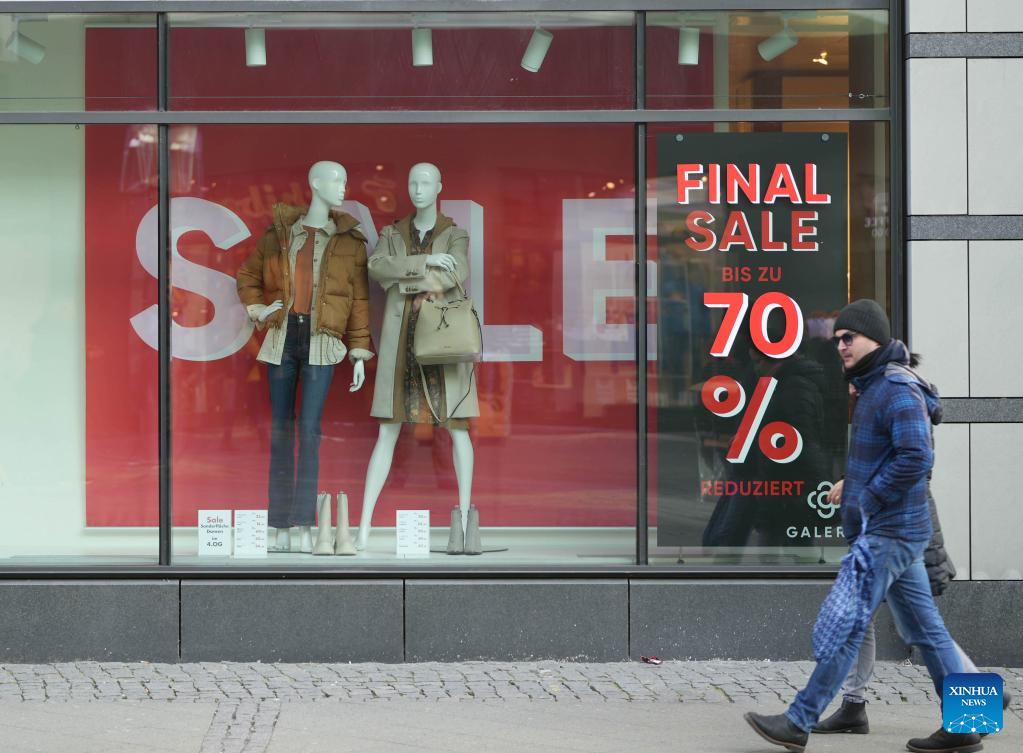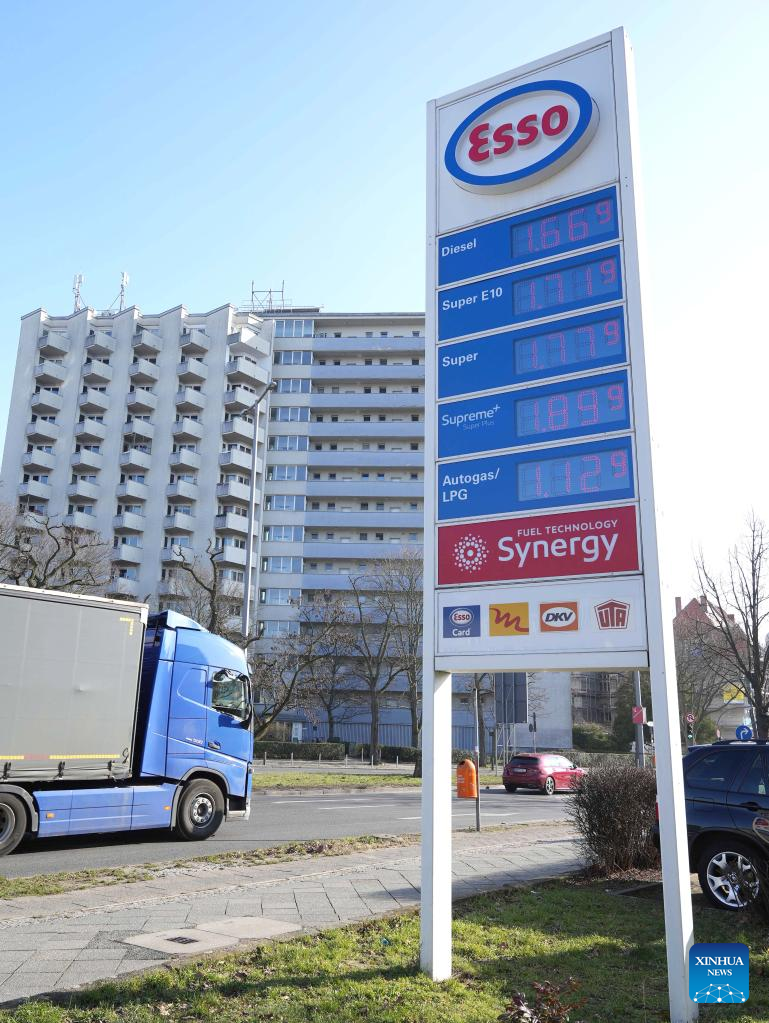Eurozone inflation softens in February: Eurostat

People walk past a store in Berlin, Germany, on March 2, 2023. The eurozone's annual inflation rate is projected to fall to 8.5 percent in February from 8.6 percent in January, the European Union's statistical office said in a preliminary estimate on Thursday. (Photo by Stefan Zeitz/Xinhua)
BRUSSELS, March 2 (Xinhua) -- The eurozone's annual inflation rate is projected to fall to 8.5 percent in February from 8.6 percent in January, the European Union's statistical office said in a preliminary estimate on Thursday.
According to Eurostat, energy price rises slowed to 13.7 percent last month from 18.9 percent in January. Food, tobacco and alcohol prices rose by 15 percent year-on-year for February, compared to 14.1 percent the previous month.
Non-energy industrial goods and services prices were also increasing. The annual inflation rate for non-energy industrial goods is projected to reach 6.8 percent in February, compared to 6.7 percent in January. The respective figures for services are 4.8 percent in February and 4.4 percent in January.
The cost of energy has been the main driver of inflation in the eurozone since the outbreak of the COVID-19 pandemic and the conflict in Ukraine. Energy prices peaked in October last year at a record 41.5 percent. In February this year, the year-on-year increase is projected to be 13.7 percent.
The Baltic countries are projected to record the highest annual inflation rates last month, with 20.1 percent for Latvia, 17.8 percent for Estonia and 17.2 percent for Lithuania. Countries with the lowest year-on-year inflation in February include Belgium with 5.5 percent, Spain with 6.1 percent and Greece with 6.5 percent.
"The February reading is a clear setback," commented Bert Colijn, senior economist for the eurozone at ING.
"Forward-looking indicators show that the declining trend in inflation is set to continue ... Energy inflation is set to turn negative soon, possibly already in March. But the question is how fast other price categories will see declines and if inflation proves to be stickier than expected," he said.
Food prices should continue to rise, but over the course of the year the increase should slow down, according to Colijn.

A customer shops at a store in Berlin, Germany, on March 2, 2023. The eurozone's annual inflation rate is projected to fall to 8.5 percent in February from 8.6 percent in January, the European Union's statistical office said in a preliminary estimate on Thursday. (Photo by Stefan Zeitz/Xinhua)

A price board is seen at a gas station in Berlin, Germany, on March 2, 2023. The eurozone's annual inflation rate is projected to fall to 8.5 percent in February from 8.6 percent in January, the European Union's statistical office said in a preliminary estimate on Thursday. (Photo by Stefan Zeitz/Xinhua)
Photos
Related Stories
Copyright © 2023 People's Daily Online. All Rights Reserved.









